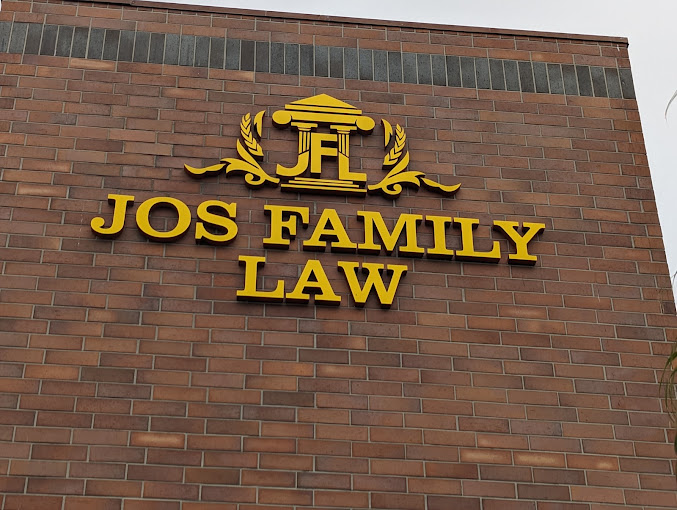Experienced Fountain Valley Divorce Attorney Protecting what Matters most to you
Divorce is one of the most stressful experiences that a person has to go through. If you have children or complex assets involved, matters may only get exacerbated. At Jos Family Law, we are committed to helping you as swiftly and efficiently as possible. We have helped clients move forward in life in contentious cases of divorce, asset division, child custody, child support, domestic violence, and more. Our founding Fountain Valley divorce attorney is experienced and can provide the representation you need during this difficult time.
Our priority is to resolve complex matters outside court in a fair settlement whenever possible. We pursue negotiation and mediation whenever possible, but if that doesn't work, we vigorously advocate for our client's rights in court. We are here to provide exceptional legal representation to you.
Grounds for Divorce in California
Spouses may cite any of the following reasons to file for divorce in California:
- Irreconcilable differences
- Incurable insanity
Irreconcilable differences is the most common reason for divorce in California. California is a no fault state, which means spouses don't have to prove fault or wrongdoing on the other's part to dissolve the marriage. By stating that the marriage has broken down beyond repair due to differences between the spouses, the spouses can restore their single status.
This no-fault standard is also applied to determine matters like child custody, child support, and asset division.
California's Residency Requirements
The spouse who files for divorce must show that at least one of the spouses has been a resident of California for at least six months and of the county for at least three months prior to filing the divorce petition.
Once the petition is filed and served to the respondent, the court will wait six months before finalizing the divorce.
Our Fountain Valley Divorce Attorneys can Help Resolve your Divorce.
Our Fountain Valley divorce attorneys can help you with all aspects of divorce and family law, including:
- Divorce
- Divorce Mediation
- Adoption
- Child Custody
- Child Suppor
- Spousal Support
- Asset Division
- Domestic Violence
- Paternity
- Prenuptial & Postnuptial Agreements
- Modification of Orders
- Parent's Rights
- Move Away Orders
- Multistate Jurisdiction
- Attorney's Fee
Divorce Mediation in Fountain Valley, CA
Facing divorce is hard, which is why our Fountain Valley divorce attorneys strive to resolve issues through mediation. Our attorneys aren't just experienced in out-of-court procedures - they also get results. We pride ourselves in providing a collaborative approach to resolve issues like child custody & support, alimony, and property division.
Mediation allows couples to communicate and resolve complex issues in their divorce. With mediation, both parties can:
- Save time
- Save money
- Resolve differences amicably
- Finalize divorce in a confidential setting
Our Fountain Valley divorce attorneys are here to guide you every step of the way. Schedule a consultation today to learn how our trained mediators can help you move forward.
How can Jos Family Law Help?
While it isn't a legal requirement to be represented by an attorney, it is highly recommended. Divorce proceedings can become complex, especially contested cases that involve children, high assets, or domestic abuse.
Our Fountain Valley divorce attorneys are knowledgeable regarding the law and its application. We can offer creative solutions to resolve your conflicts in a fair manner and finalize your divorce as quickly and efficiently as possible.
Here are some more reasons for hiring Jos Family Law:
- We will handle all paperwork, court documents, and filing.
- We have handled various contested and uncontested divorce cases
- We will identify and capitalize on areas in your case that help save time and money
- Clear communication at every step of the way
- Negotiate with your ex-spouse to reach a mutual agreement
- Mediate a solution that is beneficial for all parties involved
- Represent your interests and protect your rights in court
Contact Jos Family Law Today
Divorce has the potential to spiral out of control and become more complicated than necessary. Emotions may also get heated along the way.
At Jos Family Law, our attorneys will keep things simple and civil while pursuing your best interests. We solely focus on divorce and family laws, which means we will provide personalized attention to your case and help you obtain the outcome you deserve.
Contact us to schedule a consultation with our Fountain Valley divorce attorneys. Call (714) 733-7066 or email jos@josfamilylaw.com and take the first step in securing your rights and interests.
Get In Touch
Our attorneys are here to help you during every stage of your case. Schedule a confidential consultation and know your options with the seasoned counsel of top family law attorneys.
Contact Information
Please call, email, or contact our office online to arrange an appointment for your case today.








